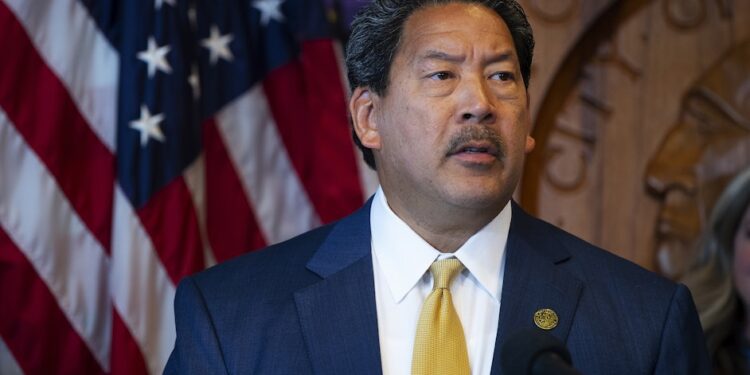Mayor Bruce Harrell unveiled his $8.9 billion budget proposal for 2026, featuring the largest departmental funding increase for Seattle Police while most other city departments face spending constraints due to a projected $150 million budget deficit.
The Seattle Police Department would receive a $40 million boost, representing a $33.6 million total budget increase driven by successful officer recruitment that exceeded projections. The department hired 175 more officers than it lost this year, surpassing predictions by 147 positions after years of recruitment challenges.
The police funding increase delivers on Harrell’s primary campaign promise while highlighting the city’s financial constraints. Human Services would receive $28.6 million more and the Fire Department would see a $21.5 million increase, but most other departments must reduce spending through hiring freezes and travel restrictions rather than layoffs.
Seattle’s budget deficit stems from slowing construction activity that has reduced tax revenue, combined with sluggish business hiring and slower-than-expected growth in the city’s payroll tax on large companies. Economic projections improved slightly from earlier estimates, but analysts warn conditions could deteriorate quickly.
The budget’s viability depends on two November ballot measures. A business tax restructuring would generate $80 million by shifting costs to larger companies, while an education levy would fund youth programs. Without voter approval, the budget mathematics fail to balance.
The city plans to divert $189 million from the JumpStart payroll tax, originally designated for affordable housing, to address general budget shortfalls. This represents a significant shift from the tax’s intended purpose.
Despite financial constraints, the budget includes new spending initiatives. A $39 million state sales tax increase would fund overdose treatment facilities and non-police emergency responders. Additional allocations include $20 million for a reparations fund for displaced communities, $8 million for emergency shelters, neighborhood investments in Little Saigon and Lake City, and $2 million for security barriers at Pike Place Market.
Seattle faces another projected $140 million deficit in 2027, indicating ongoing structural budget problems. City officials acknowledge addressing financial challenges annually rather than implementing long-term solutions.
The City Council will review and potentially modify the budget proposal before final approval. This represents Harrell’s final budget before the November election, adding political significance to every spending decision.
The budget proposal reflects Seattle’s strategy of prioritizing public safety funding while relying on voter-approved tax measures to avoid deeper cuts across other city services. However, the city’s financial foundation remains unstable without comprehensive long-term fiscal planning.
The debate over budget priorities occurs as Seattle continues grappling with public safety concerns, homelessness, and economic recovery challenges that have shaped municipal policy discussions throughout Harrell’s tenure.







